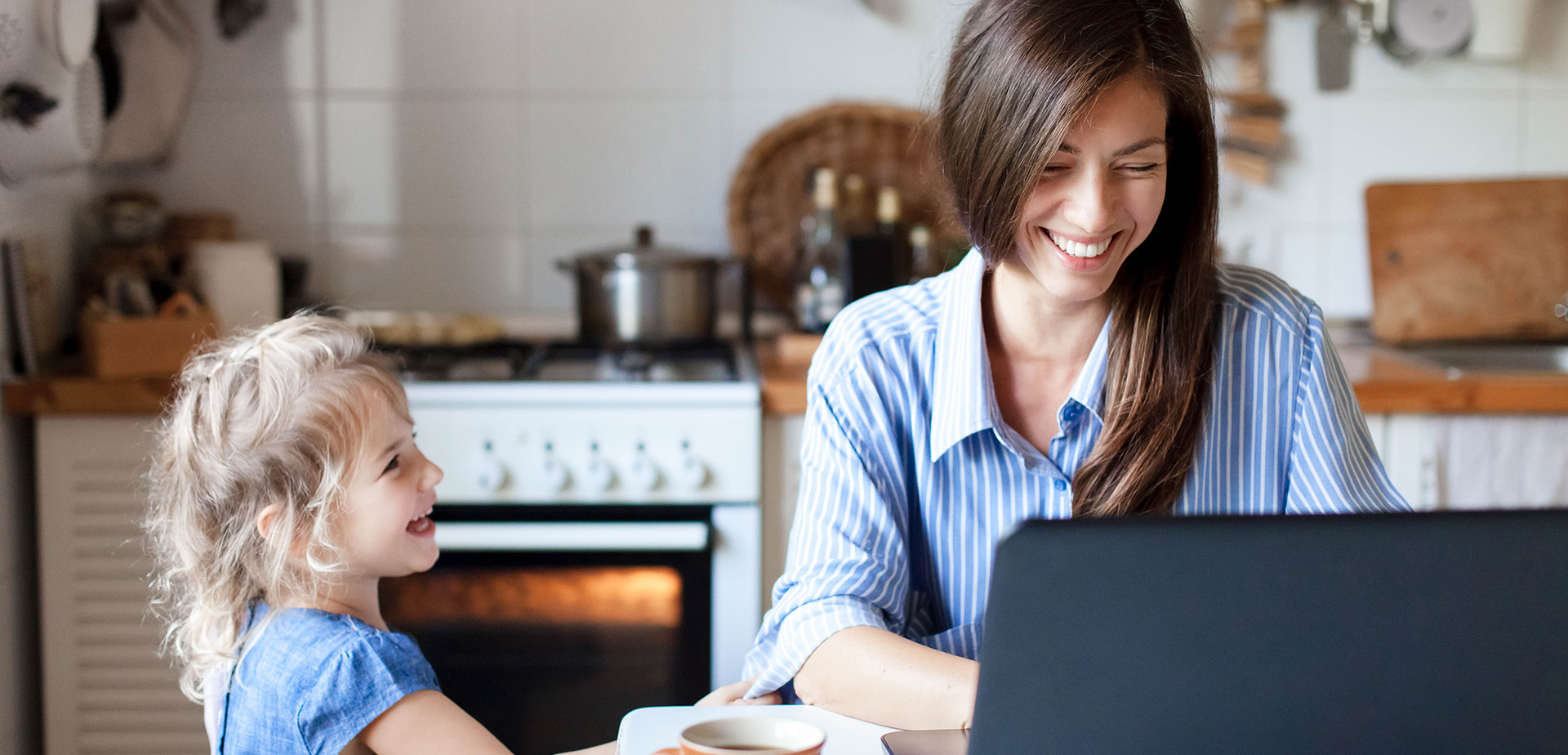Working from home has become a phenomenon, one that has also made it difficult for many to stay healthy. Spending more time indoors can be challenging and stressful for many. Often, it can cause anxiety and have an impact on physical, mental and social health.
We’ve pulled together a few tips to help you manage your physical, mental and social health while working from home.
Keep a daily routine
Structure makes us feel we have some type of control and stability in our life, which is especially important during times of uncertainty. Maintaining a daily routine can help decrease anxiety and depression. Your daily routine should include times for productivity, learning, self-care, relaxation and socialization.
Stay hydrated and eat regular meals
Skipping meals or failing to keep yourself hydrated can contribute to mood changes, which can have a negative impact on your stress and anxiety levels. Try to maintain a healthy diet and avoid the use of alcohol and drugs.
Follow a consistent sleep schedule
Going to sleep at the same time and waking up at the same time is always recommended to support your physical and mental health. Lack of sleep, excess sleep and irregular sleep schedules can increase anxiety and depression. These tips on sleep hygiene can help you reset your schedule.
Get fresh air and spend time outdoors
Dark environments can contribute to mood changes and impact energy levels—daily exposure to fresh air and natural light is important for your physical and mental health. If going outdoors isn’t possible, keep the shades open or open a window if the weather permits.
Keep up with personal hygiene and daily chores
While it can be tempting to skip regular showers or other personal hygiene routines during self-isolation, it can negatively impact your mood. Your space can also contribute to your mood, so it’s important to maintain a clean and tidy environment. Take advantage of the extra free time to wash that stack of dishes in the sink or organize your closet. If you’re struggling, try breaking these down into smaller tasks or set aside a few minutes each day to focus on one thing.
Get moving
Body movement, even minimal movement, helps to relieve stress and positively improve your mood and increase energy levels. Go for a walk or run outside, if you’re able to, or do some stretches while sitting on a chair. You can find lots of free videos for yoga and exercise routines on YouTube or Instagram, suitable for all fitness levels. You can also consider downloading a fitness app.
Take time to connect with others
Connection is vital to our mental health, especially during difficult times. Call or video chat with family members or friends. Text or email your coworkers. Go old school and mail out letters or cards. If you’re in self-isolation with loved ones, enjoy the extra time with them and use it to deepen your connection.
If you’re feeling stressed or anxious, be sure to talk about your concerns and feelings with someone you trust. And if you’re in a position where you can help others, offer to provide social support or deliver groceries to those who are unable to leave their home.
Limit exposure to the news and social media
Staying informed is important but constant exposure to the news or social media can cause increased stress and anxiety. Choose small windows of time to catch up and make sure you follow only reputable sources.
When sharing information, make sure it’s accurate to avoid spreading misinformation and help others feel less stressed. After catching up, manage anxious thoughts with a self-management strategy such as mindfulness, meditation, art or exercise.



Thank you for these tips. Very helpful.
Thank you Anne! We’re so glad you like them. We appreciate the comment 🙂
Great website.thanks for sharing this topic